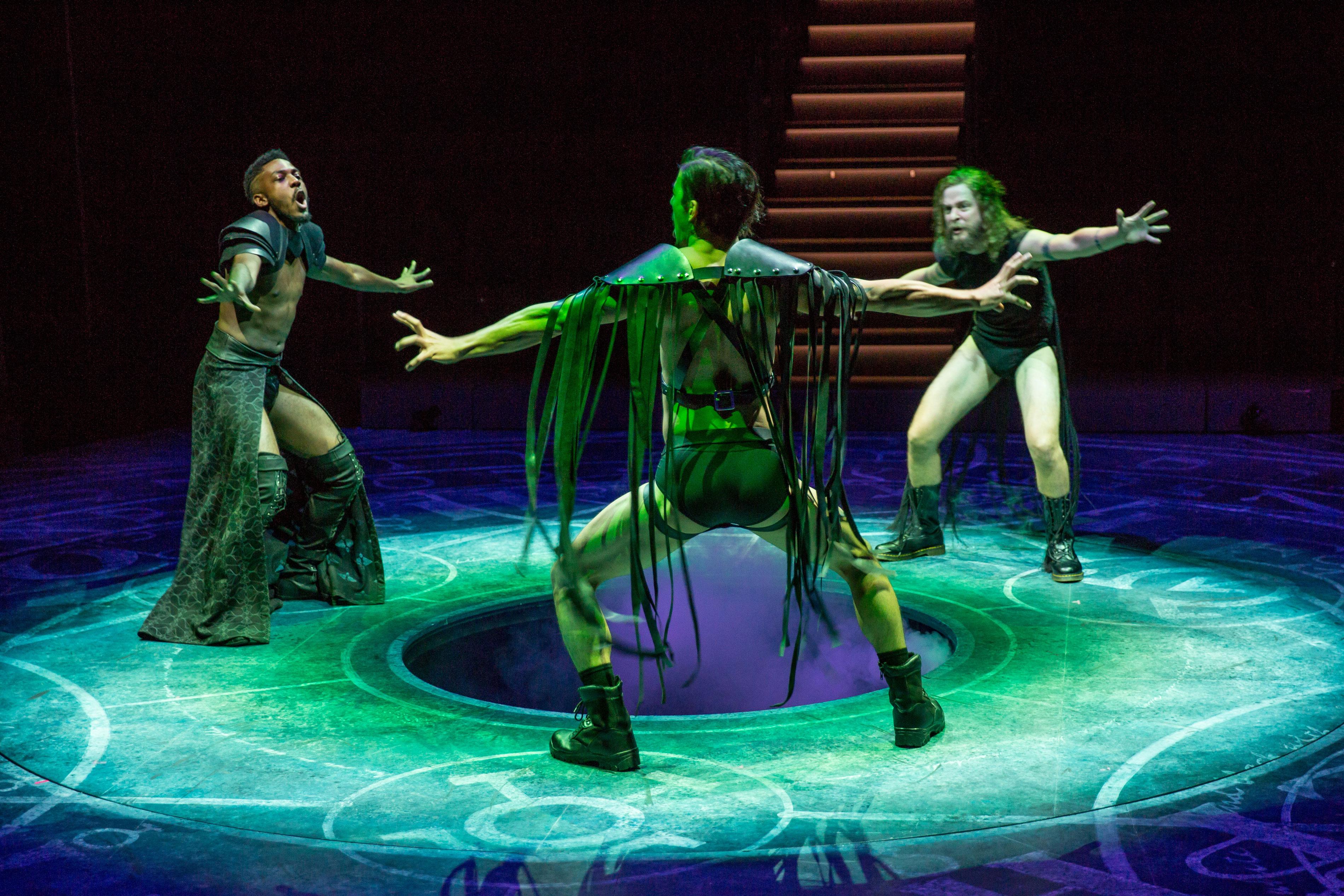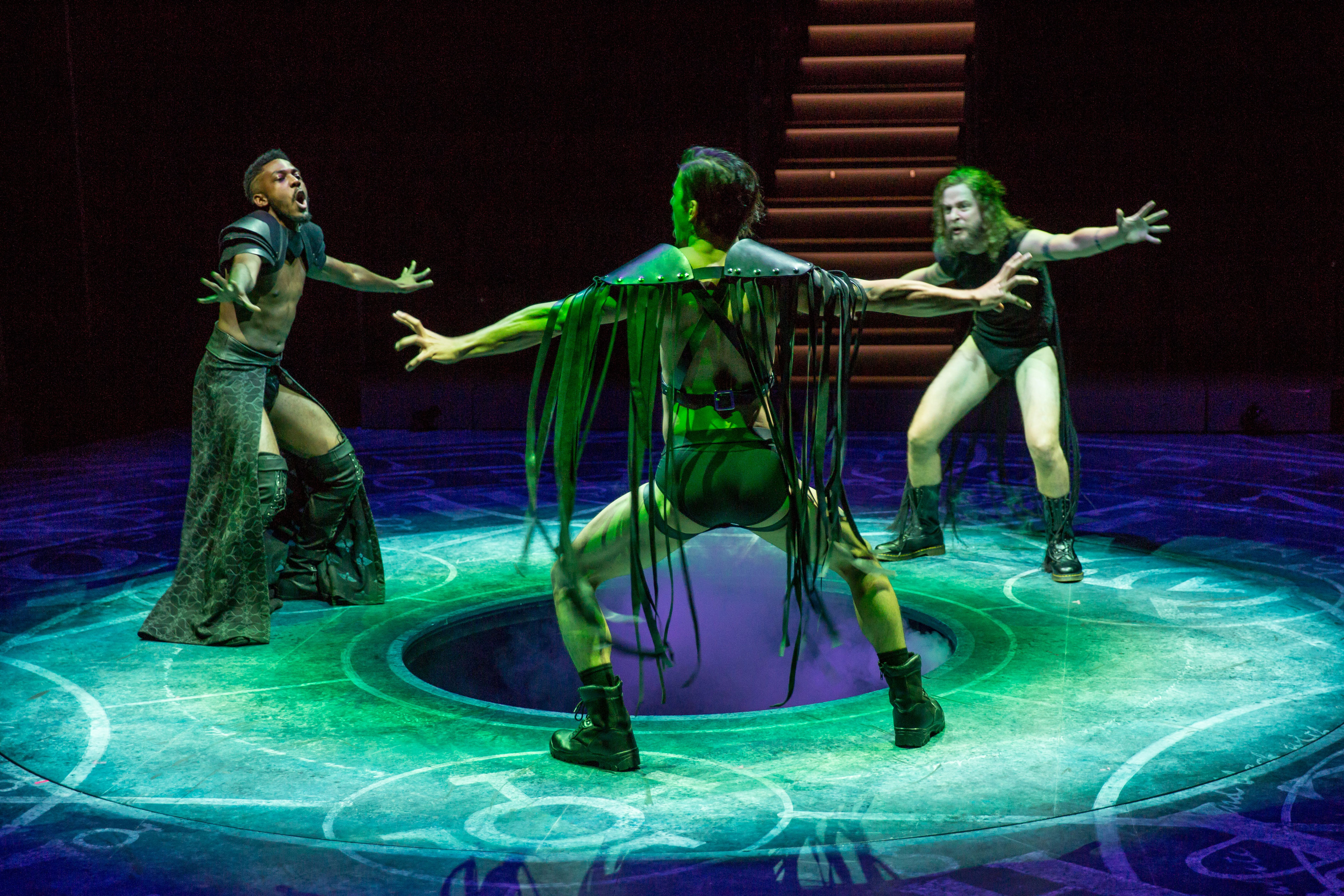

Theater-goers will get their first taste of the $11 million renovation of the Space Theatre with a new version of “Macbeth” that doesn’t hold back.
“The play pushes you,” New York City-based director Robert O’Hara says. “I’m not here to do anything the way it should be done, I’m here to explore the possibility of how it can be done.”
The Denver Center for the Performing Arts Theatre Company states it very clearly: “This is not a conventional staging of ‘Macbeth.’” It’s by nature a dark and brutal play, and this production emphasizes that.
There’s beat-heavy electronic music. The fight scenes have choreography resembling contemporary dance, while strobe lights and neon flashes pierce through the darkness. It can look like a nightclub at times.
This risqué reimagining foregoes regal costumes for black leather and lots of skin. It’s also an all-male cast, which is a throwback to Shakespeare’s day when women weren’t allowed to act professionally. But the casting is used as a way to confront the idea of masculinity — already a big theme in “Macbeth.”
“I come to the theater as myself, as an openly gay African-American man living in the 21st century,” O’Hara says. “This idea of someone sitting down reimagining something — I know that’s a marketing ploy, but I think that’s just directing theater.”
On top of sex and gender roles, O’Hara also wanted to explore the supernatural. The three witches who share prophecies with Macbeth are instead warlocks in this production. Even though the script hasn’t changed, O’Hara tells the story from their point of view.

The in-the-round design of the Space Theatre amplifies the visceral experience for the audience, which encircles the stage. You will see actors coming at the stage from all directions, including above.
That’s one change with the renovation: It opened up the overhead catwalk area making it easier to rig something or even someone to descend from above. And yes, that happens in “Macbeth.”
Another change is capacity, it actually dropped to 380 seats. But the Denver Center built the venue to have more flexibility to tailor to each production. In that way seats can be added or moved around. There are also two levels of seating instead of three, which means more of the audience is closer to eye-level with the cast.
“Now most of the audience is able to relate to the actor in a more human way, as opposed to looking down on the top of their head,” DCPA director of production Jeff Gifford says.
A bulk of the money for the renovation came from the city’s 2007 “Better Denver” bond program. In November, Denver voters will decide on a similar bond package that would give another $19 million to the DCPA to renovate two more theaters.
“Macbeth” runs at the Denver Center’s Space Theatre through Oct. 29.









